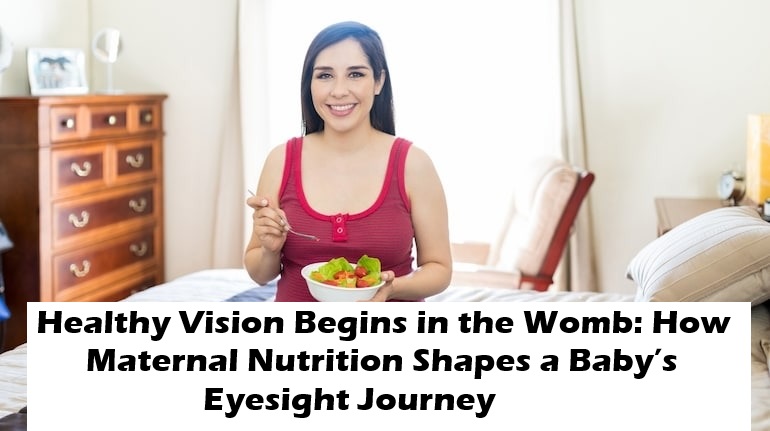
A baby's eyes begin to develop in the womb. A mother's diet and lifestyle during pregnancy greatly influence her child's vision. ‘We often say we see the world through our eyes but how often do we think of that journey and how it begins, Dr. Mukherji,(Lt. Col.) Senior Consultant, Sharp Sight Eye Hospitals. says ‘ The process of eye development begins early in pregnancy. Important components such as the retina and optic nerve are formed within the first month. Nutrition is very important during this period. The correct nutrients at the correct time can significantly reduce the risk of visual impairments and allow for strong development of vision later in childhood,’ explains Dr Mukherji.
Even though genetics have an influence on eye health, many studies show that nutrition during pregnancy and early childhood have a greater effect. ‘Vitamins A, Omega three fatty acids and Zinc are necessary for proper development of the eye during infancy and early childhood,’ says Dr Mukherji.
Benefits of breastfeeding: Essential antioxidants and fatty acids that support a baby's eye development are critical, especially in the first six months of life, and breastfeeding provides just that (Image: Canva).
The doctor explains: Vitamin A is critical to forming the retina, and it helps prevent night blindness. Besides, DHA coming from fish and some plant oils, aids in the development of the retina and the brain. “These nutrients assist in a baby being able to clearly see at birth and also help prevent significant long-term concerns such as refractive errors, cataracts, or even age-related macular degeneration,” he explains.
Dr. Mukherji has emphasized what goes into a pregnant woman’s diet and said, “Breastfeeding also plays a key role, especially in the first six months, providing essential antioxidants and fatty acids that continue to nurture a baby’s eyes from the inside out.” This nurturing is required in the first year of life, which he describes as a second phase of construction, during which the retina sharpens and the visual cortex starts to interpret the signals from the eyes in conjunction with the brain.
The doctor adds, “Without accessible nutritional support during this time, development may be delayed or impaired. Lutein and zeaxanthin, two lesser-known carotenoids, are vitally important because they act as natural blue light filters capable of protecting sensitive eye tissues.”
These nutrients are often overlooked. Dr Mukherji adds: A simple diet that consists of nuts, dairy, fish, and a variety of leafy greens does wonders. “Moreover, their contribution in safeguarding the macula and enhancing visual acuity is vital.” When coupled with breastfeeding and conscientious nutrition during the breastfeeding period, these decisions form the foundation not only for vision but also for how vividly and clearly a child perceives reality.”

 Share
Share



